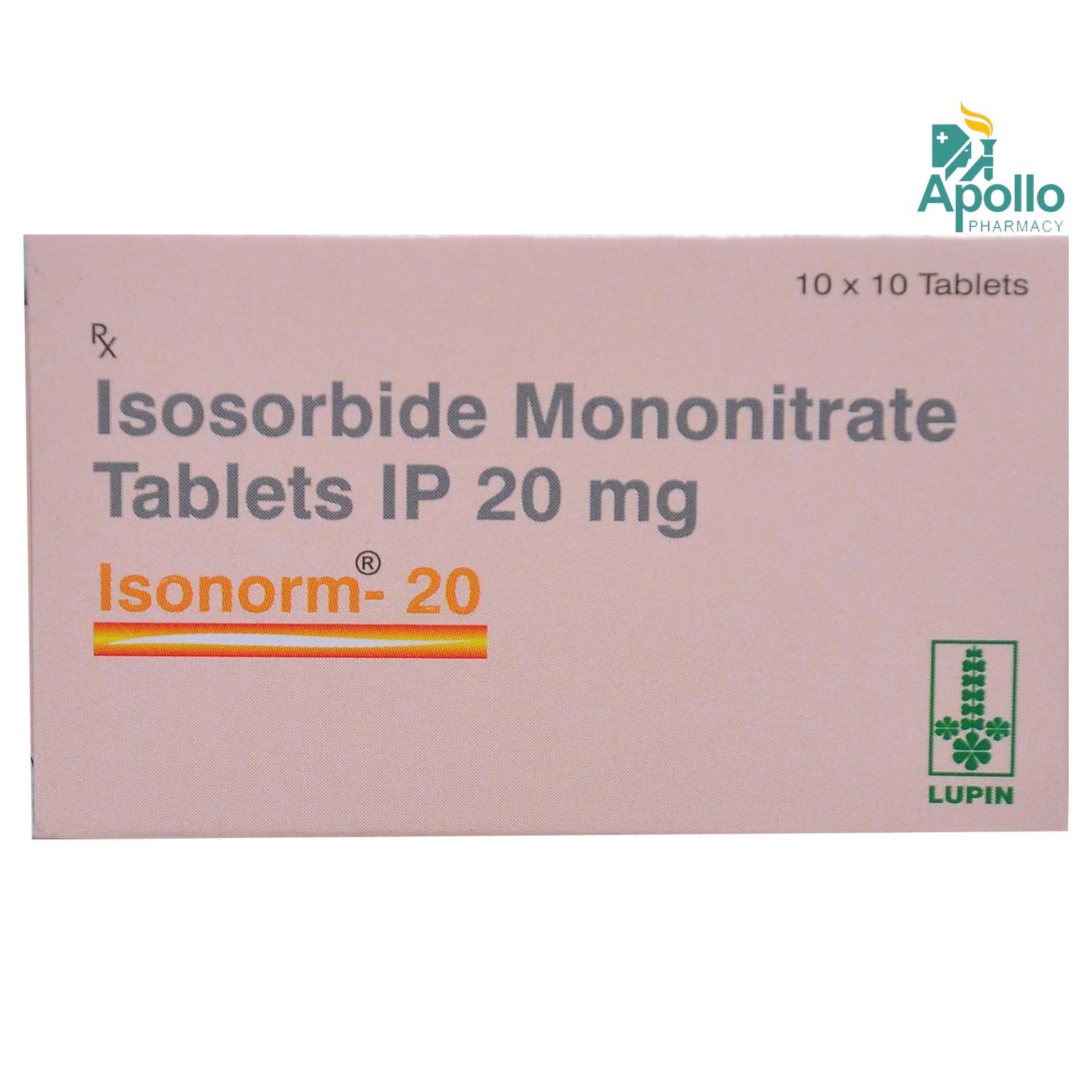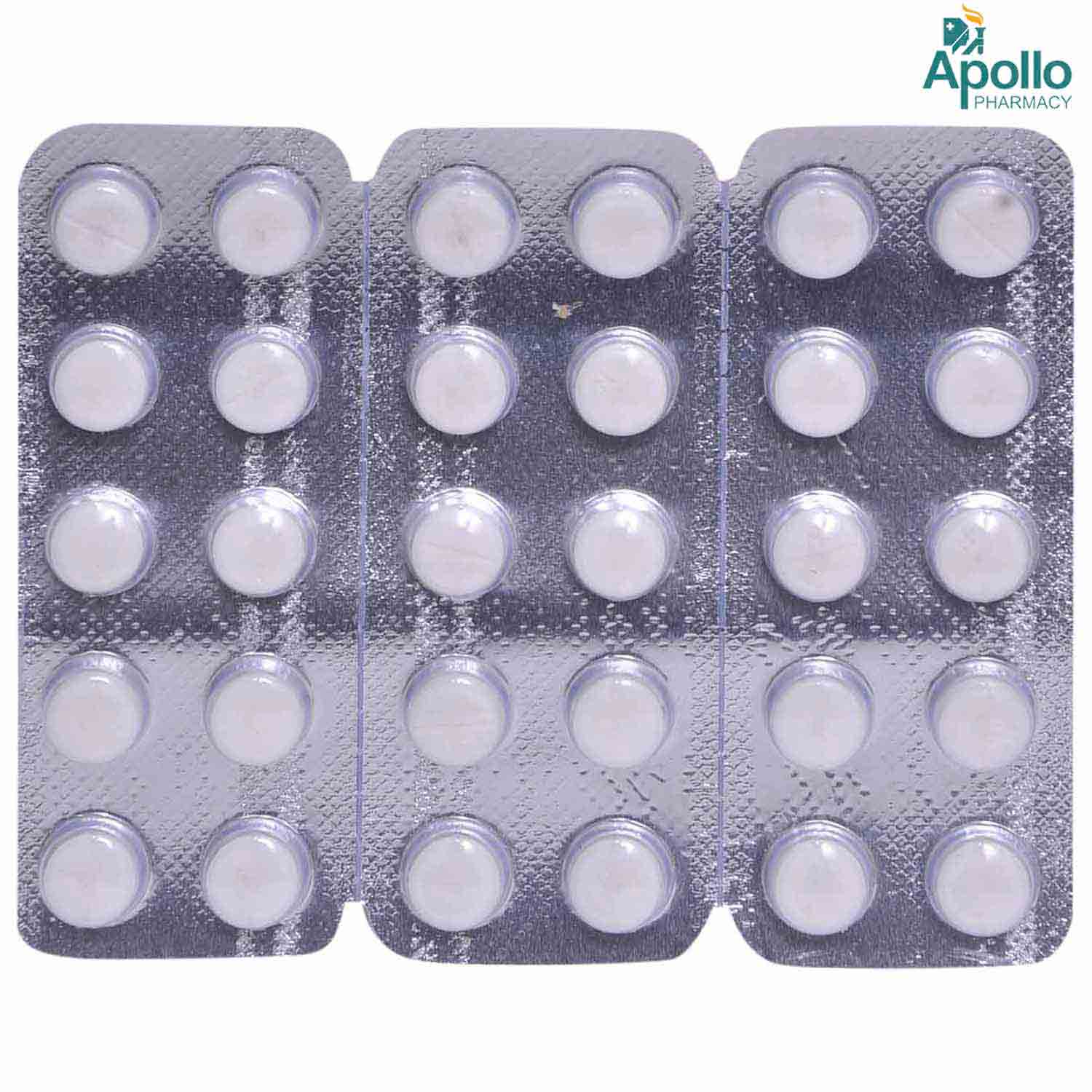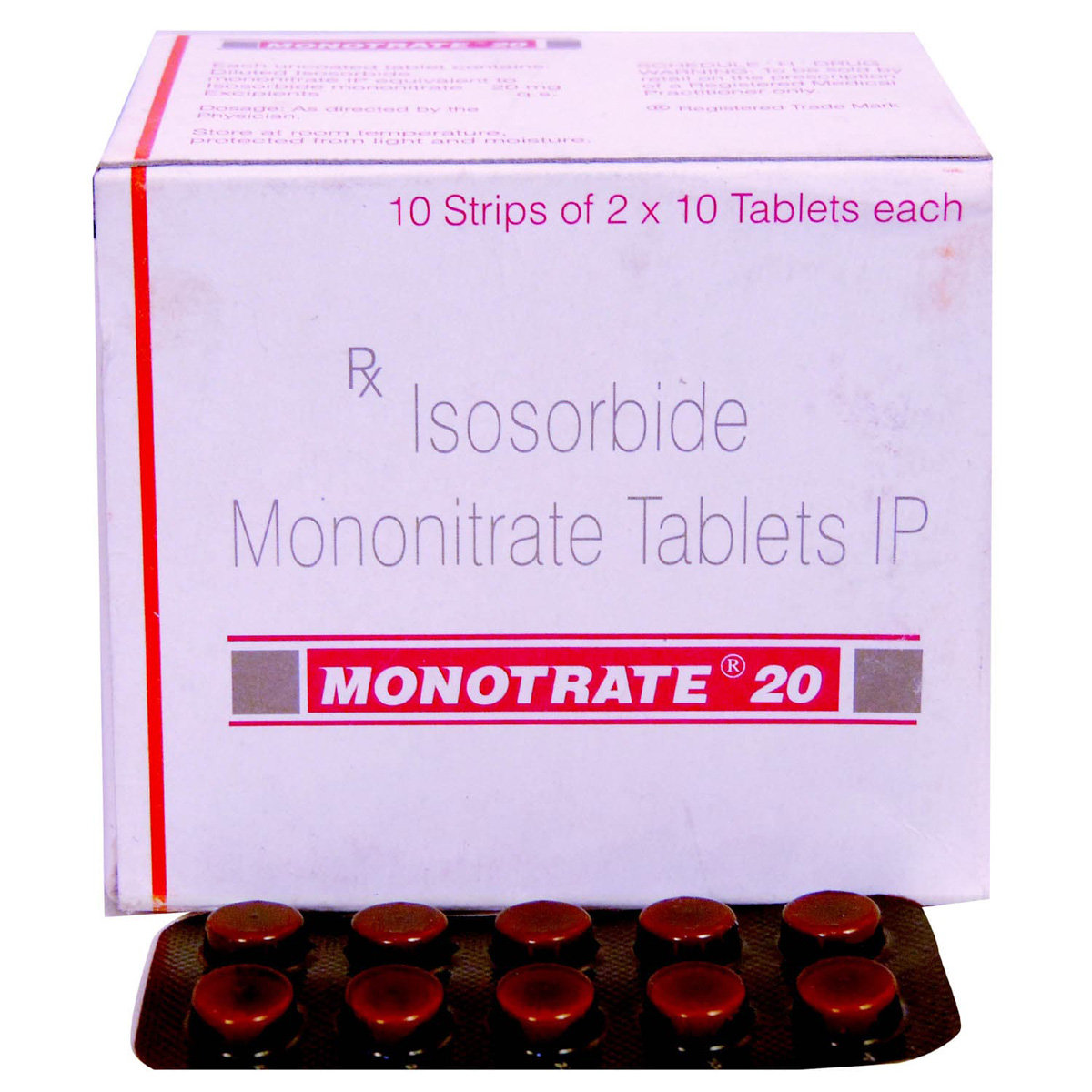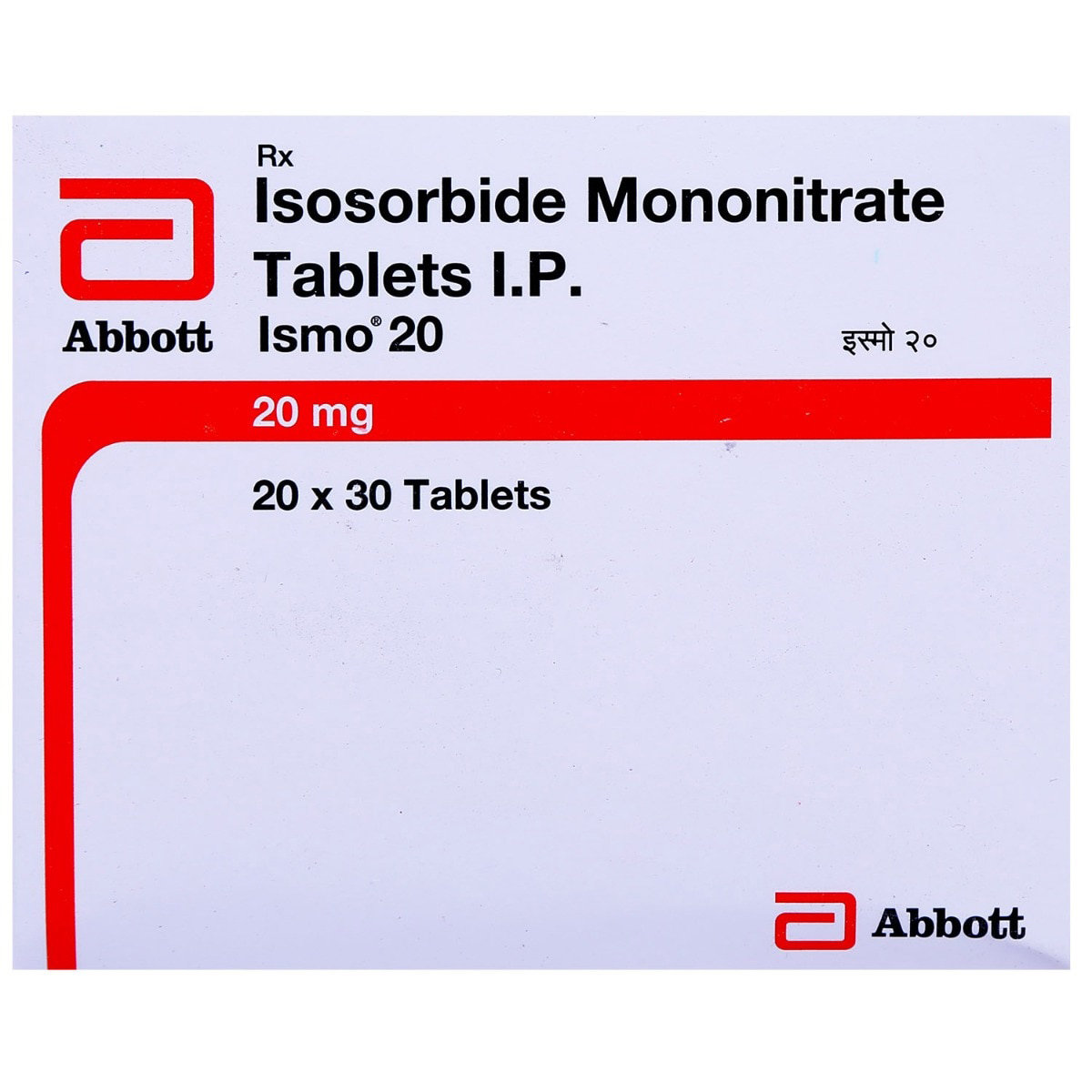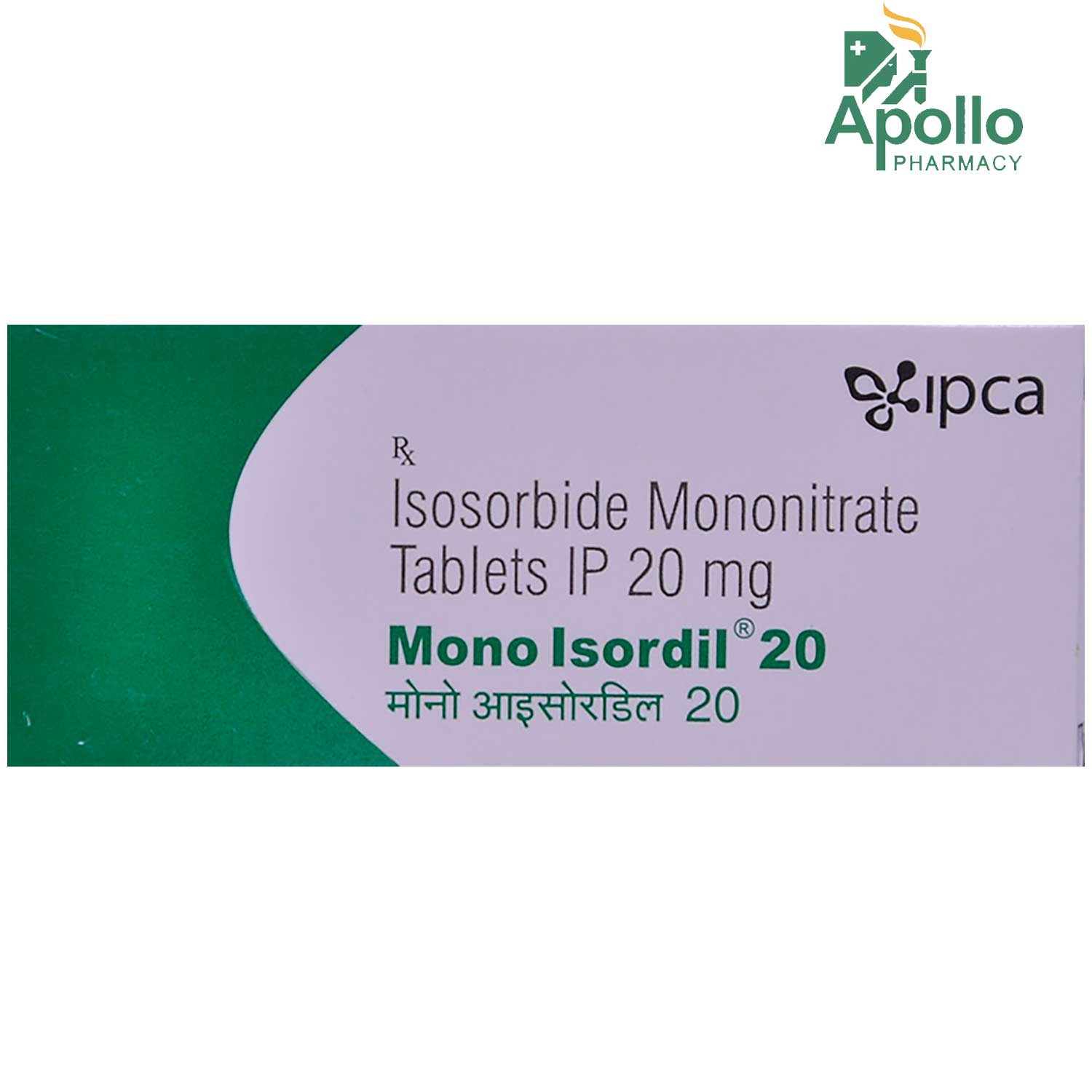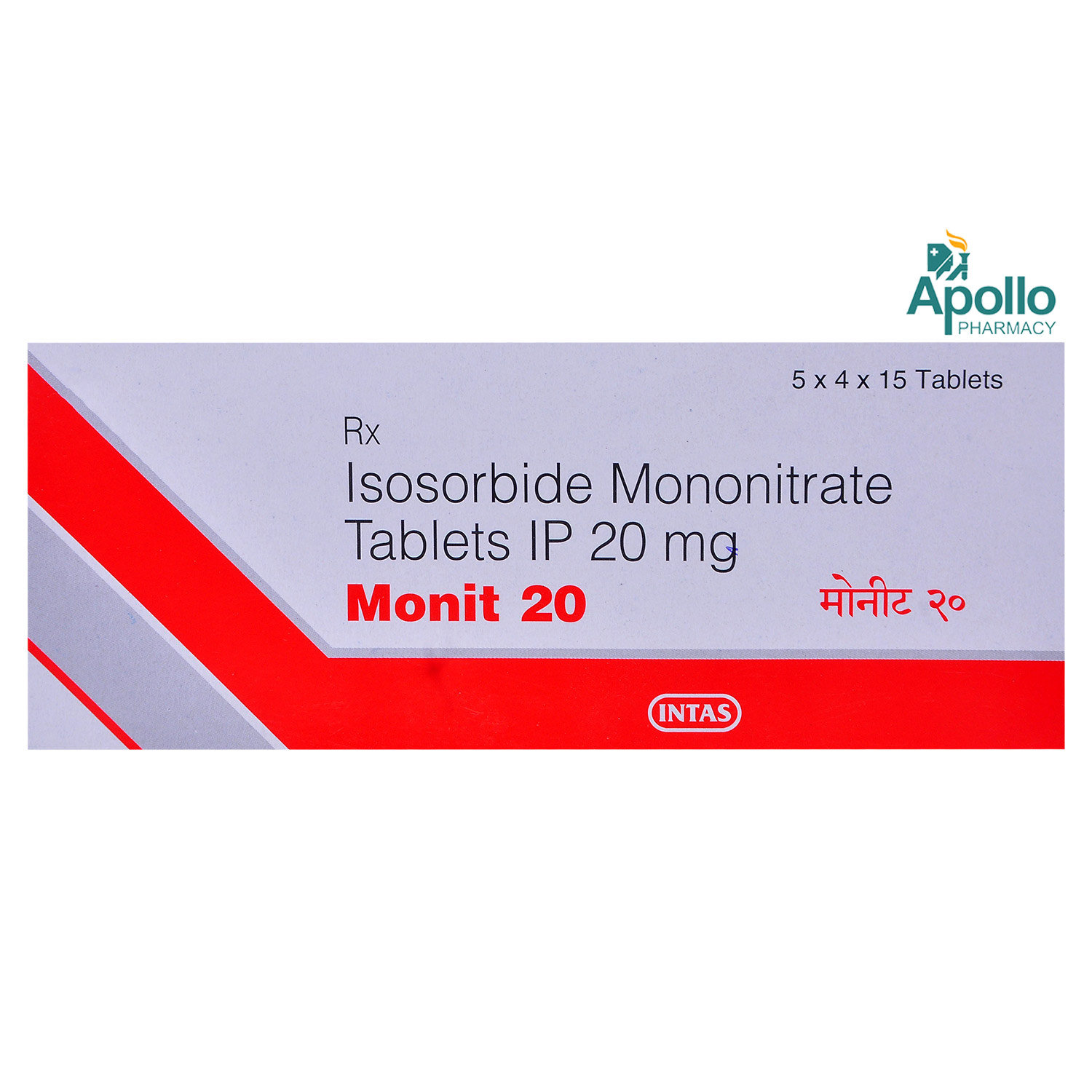IHD 20 mg Tablet 10's
MRP ₹40
(Inclusive of all Taxes)
₹6.0 Cashback (15%)
Provide Delivery Location
Online payment accepted
 Prescription drug
Prescription drugWhats That
Composition :
Manufacturer/Marketer :
Consume Type :
Expires on or after :
Return Policy :
About IHD 20 mg Tablet
IHD 20 mg Tablet belongs to the class of organic nitrates with blood vessel dilating activity. It is used for a heart condition called angina pectoris in which blood vessels of the heart get narrowed in an unexpected and sudden manner leading to decreased blood flow to the muscles of the heart leading to its suffocation & thus leading to a tight pain in the chest, neck or arm area.
IHD 20 mg Tablet a mononitrate form of isosorbide is a powerful vasodilator (widens blood vessels). It works by the formation of the free radical nitric oxide (NO) inside our body which leads to the relaxation of muscles of blood vessels, especially of the heart leading to proper blood flow towards the heart muscle which has been working under immense pressure due to decreased blood flow to it.
IHD 20 mg Tablet should be taken as prescribed by your doctor, with or without a meal at fixed intervals every day for best results. The dose of IHD 20 mg Tablet can vary depending upon your condition and the severity of the condition. Also, it is recommended to complete the course of medicine even if you feel better. The common side effects of IHD 20 mg Tablet include nausea, dizziness & headache. Everyone need not experience the above side effects. In case of any discomfort, speak with a doctor.
Before starting IHD 20 mg Tablet , please inform your doctor if you have any allergy (against any nitrate), have suffered a heart attack/stroke, or have an eye disease called glaucoma. Do not take IHD 20 mg Tablet on your own as, self-medication. If you are pregnant or breastfeeding, think you may be pregnant, or are planning to have a baby, ask your doctor or pharmacist for advice before taking this medicine.
Uses of IHD 20 mg Tablet
Directions for Use
Key Benefits
IHD 20 mg Tablet belongs to a class of medicines called nitrate vasodilators. These operate by relaxing the blood vessels of the heart, reducing the stress on the heart and making it easier to pump blood. IHD 20 mg Tablet is used to prevent attacks of angina pectoris. Angina usually feels like tight chest pain, neck or arm area. The pain originates from the heart muscle and is a sign that part of it is not getting enough oxygen for the amount of work it is doing.
Storage
Drug Warnings
Communicate to your doctor or pharmacist before taking IHD 20 mg Tablet if a patient has low performing thyroid gland, is undernourished because of a poor diet, has severe liver/kidney problems, suffers from hypothermia (very low body temperature), suffers from very poor blood circulation, has had any lethal damage to heart such as a heart attack or suffers from a disease called glaucoma (increased pressure in the eye).
Diet & Lifestyle Advise
- Adopting a heart-healthy lifestyle will help you keep your cholesterol and blood pressure down, keep your arteries clear and avoid angina.
- Eat plenty of fruits, vegetables, whole grains and low-fat sources of protein such as nuts and fish.
- Regularly workout.
- Maintain a healthy weight and keep your diabetes in check.
- Stop smoking.
Side Effects of IHD 20 mg Tablet
- Fainting
- Low blood pressure
- Headache
- Dizziness
- Nausea
- Swelling of eyelids, face or lips
- Rash or itching especially those covering your whole body
- Exfoliative dermatitis (serious illness with blistering of the skin, mouth, eyes and genitals)
Habit Forming
Therapeutic Class
All Substitutes & Brand Comparisons
RX
Out of StockMONO SORBITRATE 20MG TABLET
Nicholas Piramal India Ltd
₹23.97
(₹2.11 per unit)
41% CHEAPERRX
Isonorm 20 Tablet 10's
Lupin Ltd
₹29.5
(₹2.66 per unit)
26% CHEAPERRX
Out of StockCuritrat 20mg Tablet
Curis Lifecare
₹34
(₹3.06 per unit)
15% CHEAPER
Author Details
We provide you with authentic, trustworthy and relevant information
FAQs
Drug-Drug Interactions Checker List
- SILDENAFIL
- ISOSORBIDE DINITRATE
- CAPTOPRIL
- CLONIDINE
- MOXONIDINE
- DIHYDROERGOTAMINE
- AMITRIPTYLINE
Special Advise
- Avoid vigorous physical activity that may aggravate anginal attack.
- Avoid smoking.
- A patient should avoid places where airflow is restricted.
Disease/Condition Glossary
Angina or chest pain: It is the most common indication of heart disease caused due to decreased blood flow to heart muscles. The heart is dependent on oxygen for its functioning and pumping of blood yet sometimes due to various genetic and environmental reasons the blood vessels supplying blood to the heart narrow unexpectedly causing decreased blood flow to the heart. This abrupt decrease in blood flow leads to increased stress on the heart to pump blood towards different organs causing an event of acute chest pain that starts from the arm along the jaw and finally involves the chest. Angina pectoris is of 3 types:
1) Stable Angina: is the most common type in which blood flow to the heart is low as compared to what it needs to function, caused by increased physical activity.
2) Unstable angina: is the most lethal type in which blood supply to the heart decreases abruptly due to blockage of the artery by a clot etc.
3) Variant angina: occurs at rest due to spasmic narrowing of the artery.

Have a query?
Alcohol
Safe if prescribed
Do not drink alcohol. It could increase the effect of IHD 20 mg Tablet and lower your blood pressure too much. If this happens, you may feel dizzy or faint.
Pregnancy
Consult your doctor
If you are pregnant, think you may be pregnant or are planning to have a baby, ask your doctor or pharmacist for advice before taking this medicine.
Breast Feeding
Consult your doctor
If you are a breast-feeding mother, think you may be pregnant or are planning to have a baby, ask your doctor or pharmacist for advice before taking this medicine.
Driving
Safe if prescribed
IHD 20 mg Tablet may give you headache, blurred vision or make you feel dizzy or tired make sure you are not affected before you drive or operate machinery.
Liver
Consult your doctor
A patient is advised to take this drug only on doctor's consultation as there have been reports of interactions between liver patients and IHD 20 mg Tablet .
Kidney
Consult your doctor
A patient is advised to take this drug only on doctor's consultation as there have been reports of interactions between Kidney patients and IHD 20 mg Tablet .
Children
Safe if prescribed
Not to be given in children unless prescribed by a doctor.
Recommended for a 30-day course: 4 Strips




